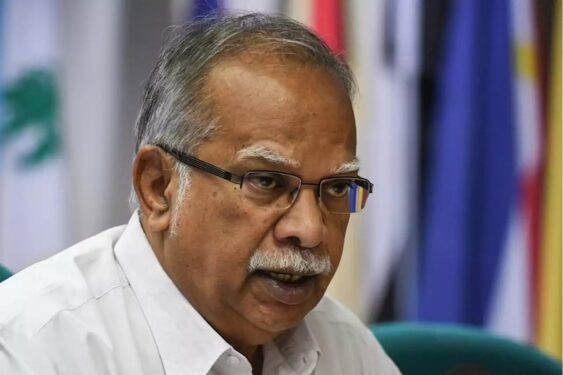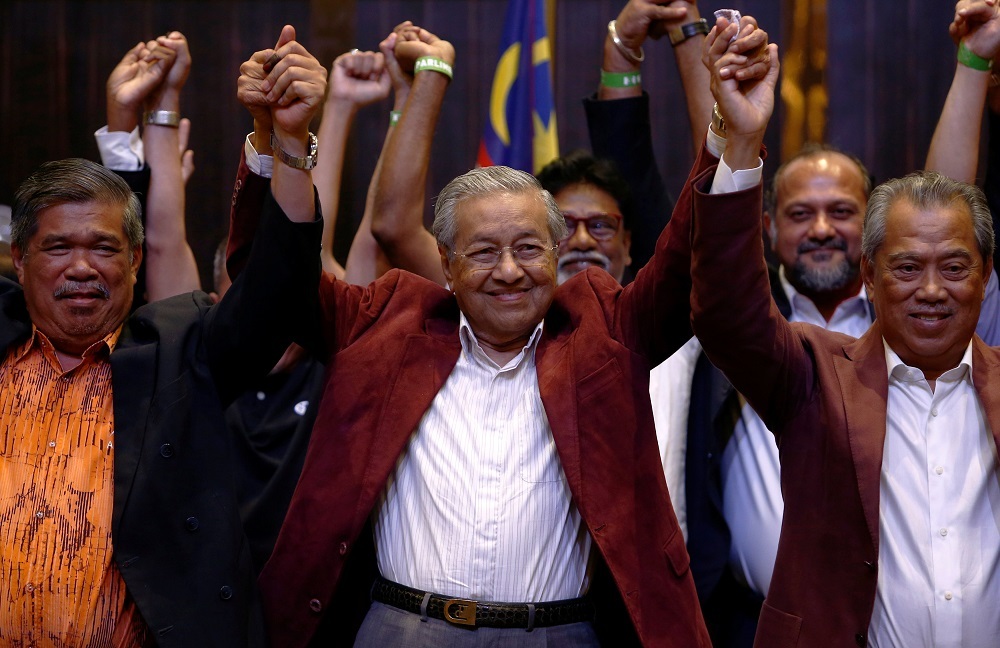FORMER prime minister (PM) Tun Dr Mahathir Mohammed has rebutted my piece entitled “Racial Rhetoric the Acknowledgment of the failure of Dr Mahathir” which was posted a few days ago in my FB.
In his reply, point-by-point, Dr Mahathir dispels the widely held notion that he is not racist but a nationalist.
His argument at to why he refers to the non-Malays, Chinese and Indians as “foreigners” is because they hold on to their languages and culture without adhering to a Malaysian nationality identity.
He says that even if they do not accept the religion of Islam, they should accept the national system of education with Malay as the national language.
While many from foreign lands particularly from the Muslim countries have come to accept the national identity, Chinese and Indians are openly defying the acquirement of a national identity – an identity which Dr Mahathir equates to as accepting the language and culture of the natives, the Malays.
He cites the example of the vernacular schools where the majority of Chinese and Indian children attend.

The Chinese have engaged in big businesses and have made billions as a result. He further claimed that without the government’s intervention, Malays have no protection whatsoever in the country.
Finally, he concludes by stating that I am racist because I am not appreciative of the nationalist sentiments of Malays.
My rebuttal
The present Chinese and Indian population in the country are the fourth and fifth generations of the immigrant population that came into the country during the British colonial period.
The existence of vernacular schools – which leverage the Mandarin and Tamil medium of instruction – predated the country’s independence in 1957.
It was something created and sustained by the British to provide minimal education for the immigrant population.
Before political independence in 1957, there was an ethnic bargain within the Alliance coalition that charted the political course of the country.
In return for recognition of Malay special rights, the role of the Sultans and Malay as the national language, non-Malays were allowed to pursue their mother tongue education (vernacular schools), culture and religion.
There is no such thing as voluntarism among the different ethnic communities in the country. The consociational formula that resulted from inter-ethnic bargaining and compromise was institutionalised in the political system.
Therefore, it is factually incorrect in the historical sense to say that non-Malays wanted to follow this and that as though they had the full-fledge autonomy to do so. Similarly, it is wrong to give the impression that Malay elites in UMNO were receptors of the demand imposed by the non-Malays.
With the failure of the ethnic bargaining model in 1969 following the racial riots, UMNO became a preeminent political party in the newly constituted coalition of BN. My question is why didn’t UMNO under various PMs – particularly under Dr Mahathir – did not bring about progressive and far-reaching changes to the educational system?
In the 1980s, there was even a proposal to bring about a single national stream of education with Malay as the national language and Mandarin and Tamil to be made compulsory to Chinese and Indian students.
Why was the government not keen in allowing for this system to take shape – a development that would remove the popularity associated with the vernacular schools?
Argument without basis
Dr Mahathir would not admit it that the government did not have serious plans to improve the functioning of the educational system.

Political expediency, the need to stay in power, dictated the UMNO politicians to adhere to the policies and measures that were not detrimental to the country in the long run.
Rather than repeatedly blaming the non-Malays, Dr Mahathir and other PMs had a share in not improving the educational system.
The national education system is composed of the national as well as the vernacular schools.
Over the years, due to ethnic discrimination, the majority of non-Malay parents are sending their children to vernacular schools. Perhaps Dr Mahathir wants to find out why these parents are preferring to send their children to vernacular schools rather than national schools.
Is it because they are not nationalistic enough or is it because the educational performance of the national schools has declined over the years.
The Education Ministry has full control over the curriculum of national and vernacular schools. It is not that the vernacular schools teach subjects that are not conducive to national integration.
If more than 20% of Malay parents are sending their children to Mandarin schools, then are these Malay parents are less nationalistic or they have been imbued with the false ideas of the “foreigners”?
There is an assumption throughout Dr Mahathir’s rebuttal as though the government and those who control it are at the mercy of “foreigners” or in other words, the non-Malays.
If this is true, then how can Dr Mahathir explain the gradual erosion of non-Malay rights in the country over the years. With the exception of the economic and financial elite, the non-Malays face numerous discriminations in the country.
If they are in control of their destiny, then why are they in such an in enviable position?
I am glad that Dr Mahathir found the time and space to rebut me. I might not agree with him but I am glad he has replied to me. Nevertheless, I completely disagree with his illogical arguments and basic assumptions. His narrative is devoid of history and fundamental facts.
By putting the entire blame on the non-Malays for not having a nationalistic spirit, he has – wittingly or unwittingly – tried to absolve the role of Malay leaders like him from taking responsibility over the failure of the political system. – March 10, 2023
Prof Ramasamy Palanisamy is the state assemblyman for Perai. He is also Deputy Chief Minister II of Penang.
The views expressed are solely of the author and do not necessarily reflect those of Focus Malaysia.









